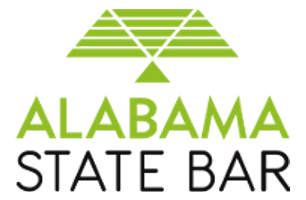Ever felt like you’re walking a financial tightrope, balancing your income and expenses with the grace of an acrobat? But then suddenly, out of nowhere, comes the weighty anchor called wage garnishment in Alabama. Your paycheck shrinks and every step forward feels more precarious. You’ve been there or maybe you’re standing on that rope right now?
We all have bills to pay – rent, utilities, food… The list seems endless. And when a chunk of our hard-earned money gets sliced off before it even reaches us due to wage garnishments – well let’s just say nobody dreams about this.
Let’s take a deep dive into the intricacies of wage garnishment in Alabama and chart our way out of this conundrum. We’ll tackle everything from understanding its process, stopping it, dealing with child support and student loan deductions to exploring exemptions. Let this be your guide out of the labyrinth.
Understanding Wage Garnishment in Alabama
In Alabama, it is important to be aware of the legal procedure for wage garnishment, which involves a court mandating your employer to deduct and remit portions of your wages directly to a creditor until the debt is settled. This occurs when a court orders your employer to withhold part of your wages and send them directly to a creditor until your debt is paid off.
The Process of Wage Garnishment
In most cases, wage garnishments start with a judgment against you. If someone sues you for money and wins, they become what’s known as a judgment creditor. The court then issues an order requiring your employer to deduct from your paychecks.
This isn’t something that happens out of the blue; before any deductions can begin, there are certain notifications required by law. You’ll be served notice detailing how much will be taken out each pay period until the debt is satisfied.
Laws Governing Wage Garnishments
The rules around this process are governed by both federal law and Alabama state laws – yes folks. We have our own set of unique guidelines on top of Uncle Sam’s regulations.
Alabama wage garnishment laws stipulate that if your take-home pay is at least $217.50 per week, up to 25% can be snatched away by creditors (Ouch.). But remember, knowledge is power. Understanding these rules puts you one step closer to regaining control over those hard-earned dollars.
How to Stop a Wage Garnishment in Alabama
If you’re dealing with wage garnishments, know that there are ways to halt them. Let’s dive into some options.
Filing Bankruptcy to Halt Garnishments
Filing for bankruptcy may be a good idea if you want an immediate stop on your wage garnishment. This is due to the automatic stay, which stops most collection efforts, including wage garnishments, as soon as you file your bankruptcy petition.
You don’t need just any lawyer – get yourself a bankruptcy lawyer. They’ll help guide you through the complex process and ensure all steps are properly taken care of.
Settling Debt with Creditors
Negotiating directly with creditors can also lead to stopping or reducing your wage garnishment. If they agree on a settlement of debt, it might end up being less than what’s currently being taken from your paycheck. It never hurts to ask for some legal advice here too.
Dealing with Child Support and Student Loan Garnishments
If you’re juggling child support or student loan payments, a wage garnishment in Alabama can feel like the last straw. However, understanding how these specific garnishments work can give you some peace of mind.
In Alabama, child support garnishments are serious business. In fact, up to 50% or even 60% of your wages can be taken for this purpose alone. This might seem overwhelming but remember that this money is helping provide for your children’s needs.
Student loan garnishments, on the other hand, follow different rules. Unlike most debt collections, where creditors need a court order to start collecting from your paychecks, federal student loans have an advantage – they don’t need one.
Pursuant to the Debt Collection Improvement Act of 1996 (DCIA) – 31 U.S.C. § 3720D and authorized by 1095a, 682.410(b)(9), the government may take up to 15% of each paycheck through an administrative wage garnishment if you default on federal education debts. So yes – those pesky student loans aren’t going anywhere fast unless we tackle them head-on.
It’s crucial not just to know these facts but also to take proactive steps toward managing your financial life when dealing with such scenarios. After all, knowledge isn’t just power; it’s the first step toward reclaiming control over our finances and living debt-free lives.
Understanding Exemptions from Wage Garnishment in Alabama
If your wages are being garnished, it’s not all doom and gloom. In Alabama, you can file a claim of exemption to stop wage garnishment if your income is less than $1,000 per pay period.
The Impact of Wage Garnishment on Your Finances
Wage garnishment can have a significant impact on your financial situation. Facing wage garnishment can make it hard to cover basic expenses or manage personal debt. If you are facing wage garnishment, it’s important to understand the implications it can have on your finances..
FAQs in Relation to Wage Garnishment in Alabama
What are the rules for garnishments in Alabama?
In Alabama, creditors must first win a lawsuit against you. Then, they can only take up to 25% of your disposable earnings if it’s above $217.50 per week.
How much can be garnished from paycheck in Alabama?
Creditors may snag up to 25% of your wages after taxes and deductions but only if you make more than $217.50 weekly.
How can I stop a wage garnishment immediately in Alabama?
You could halt wage garnishment by filing bankruptcy, filing a claim of exemption (if you qualify), or settling debt with the creditor before things get out of hand.
What is the most they can garnish from your paycheck?
The max grab is usually 25%. However, child support or student loan defaults might jack this up to 60% under federal law.
Conclusion
Wage garnishment in Alabama doesn’t have to be a tightrope walk. Let us help you explore every available option.





